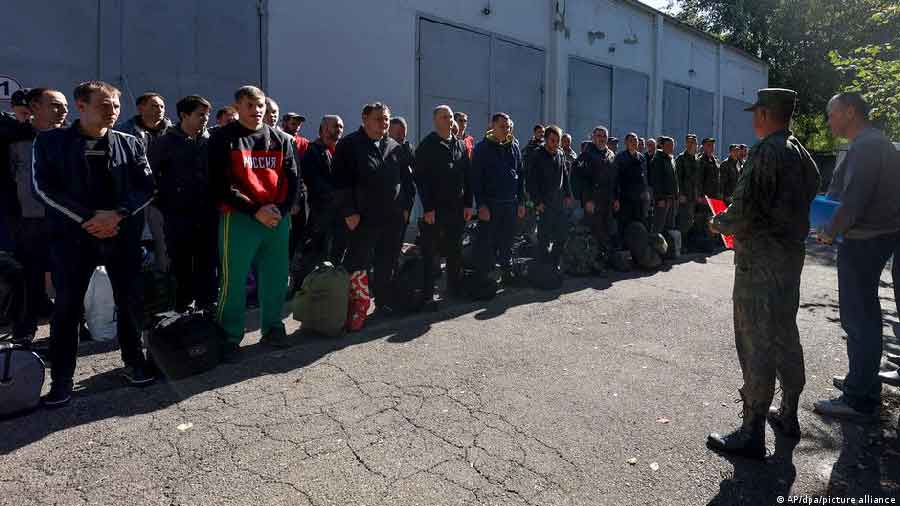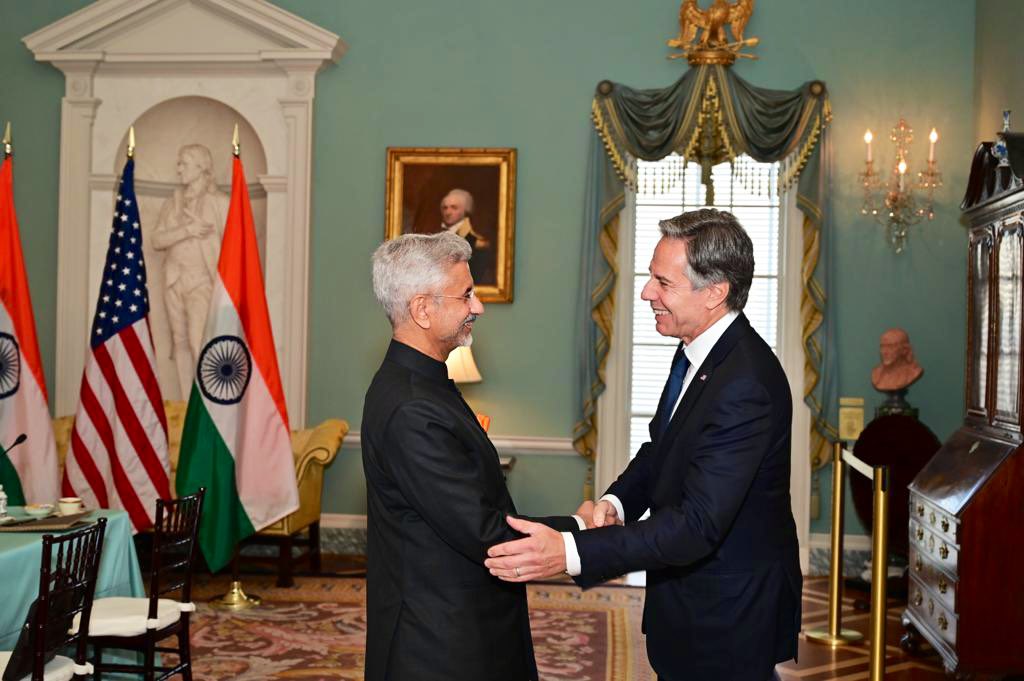After the fall of the Soviet Union, Moscow did everything it could to maintain its status as a superpower — including as a permanent member of the UN Security Council. When it became clear that Russia could not claim a right to the spot as an economic power, it instead defined its greatness in military terms.
Over the decades, Russia's army has been touted as one of the strongest in the world. Indeed, a nuclear-armed military. As if to remind the world of this fact, President Vladimir Putin has regularly treated both Russians and the world to perfectly choreographed parades and military exercises.
How powerful an army really is, however, cannot be demonstrated by goose-stepping on the Red Square, but on the battlefield. The Russians are being shown up by a much smaller army in Ukraine — an army that didn't even exist until a few years ago. How can that be?
How big is Putin's army?
On paper, the Russian armed forces claim to have 1 million soldiers, and in the near future 1.1 million, according to Margarete Klein of the German Institute for International and Security Affairs. But the real size is much smaller, she told DW.
A large number of the deployable Russian units have already been used in Ukraine, she said. "They have suffered major losses in terms of soldiers killed or injured."
Exact casualty numbers are difficult to determine, but US intelligence believes Russia has suffered at least tens of thousands of dead and wounded.
The idea that Russia has infinite reserves of deployable soldiers is a far cry from reality, said George Barros of the Institute for the Study of War, a US think tank. He added that the course the war has taken so far proves that the world has long overestimated the strength of the Russian army. The goal, he said, of Putin's recent partial mobilization push is only to maintain the current front line after all the losses.
Sent to the front without training or equipment
The state of Russia's military strength can also be illustrated by the groups of people currently being drafted. "There are men there who are over 50-years old and have health problems," Barros said. This observation has been backed up by numerous stories and videos posted to social media.
Reservists need to be trained and equipped before they deploy to war, Barros explained. However, many will now receive only one or two months of training, which is far from enough. Others are even being sent to the front lines without any training or equipment, he said, adding that the only thing these conditions are likely to accomplish is increasing the casualty numbers.
According to US-based Russian security expert Pavel Luzin, Ukraine will never abandon the fight, even as Putin's henchman carry out sham referendums in the east of the country. Furthermore, he said, Russia's arms industry is not in a position to provide significant amounts of supplies in the short-term, certainly not for those currently being drafted. Margarete Klein added that they are now using old weapons and bullets that have been in storage since Soviet times.
Then again it is unclear how many of these stored weapons have already been sold as result of corruption, or if they are even in working order anymore. The Russian arms industry lacks the necessary microchips for high-precision weapons and other spare parts, Klein said.
The only advantage Russia has really is a greater population at its disposal to draft into the military. However, as Barros pointed out, an army needs more than soldiers to be successful. It needs modern weapons, good training, leadership, motivation, and logistical planning.
"Simply putting more men on the front lines is not going to solve the problem the Russians have," the defense expert said. The well-trained and well-equipped mercenaries have also not had the desired impact, Barros added.
Intimidating the West with talk of nuclear weapons
Experts agree that using the specter of nuclear weapons is meant to intimidate the West. "This threat is not new," said Klein. The goal, she said, is to undermine the West's support for Ukraine. Militarily, the use of nuclear weapons would achieve nothing. They could have some use politically, but Klein believes that their deployment is unlikely given that it would almost certainly lose Russia the support of key allies China and India.
However, other experts, such as Ted Galen Carpenter of the Cato Institute in Washington, point out that "if Putin is faced with the choice of either using nuclear weapons or having to answer for his crimes in an international court, he will choose the nuclear option."
Carpenter said that Putin still wants to end the conflict quickly, and that if Ukraine and West showed a willingness to negotiate, Moscow would probably come to the table.
On the other hand, Klein, Barros, and Luzin all agreed that the war will only really come to an end if the West either abandons Ukraine or Putin suffers a total defeat.
From Deutsche Welle Newsfeed











